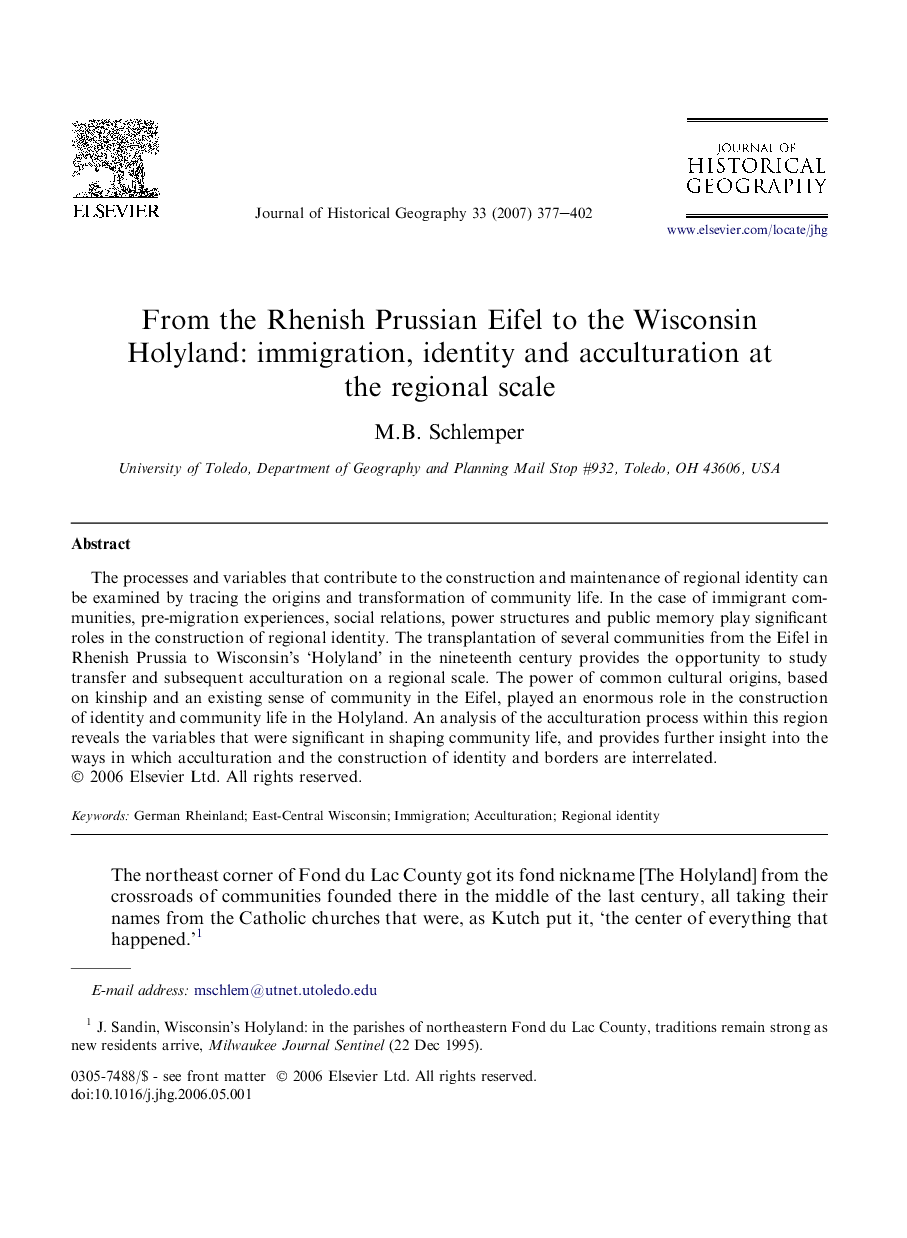| کد مقاله | کد نشریه | سال انتشار | مقاله انگلیسی | نسخه تمام متن |
|---|---|---|---|---|
| 1039596 | 944304 | 2007 | 26 صفحه PDF | دانلود رایگان |

The processes and variables that contribute to the construction and maintenance of regional identity can be examined by tracing the origins and transformation of community life. In the case of immigrant communities, pre-migration experiences, social relations, power structures and public memory play significant roles in the construction of regional identity. The transplantation of several communities from the Eifel in Rhenish Prussia to Wisconsin's ‘Holyland’ in the nineteenth century provides the opportunity to study transfer and subsequent acculturation on a regional scale. The power of common cultural origins, based on kinship and an existing sense of community in the Eifel, played an enormous role in the construction of identity and community life in the Holyland. An analysis of the acculturation process within this region reveals the variables that were significant in shaping community life, and provides further insight into the ways in which acculturation and the construction of identity and borders are interrelated.
Journal: Journal of Historical Geography - Volume 33, Issue 2, April 2007, Pages 377–402